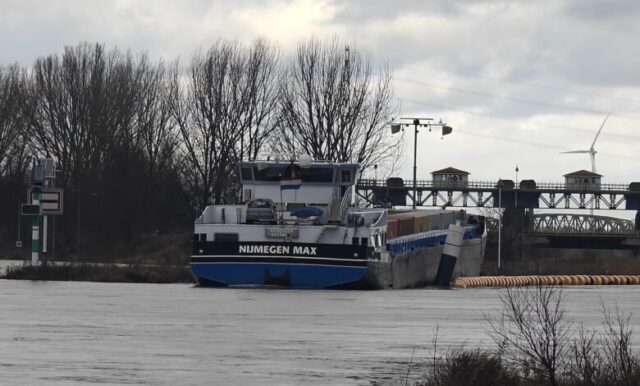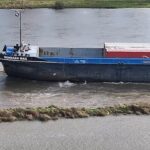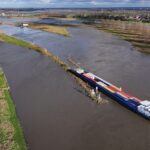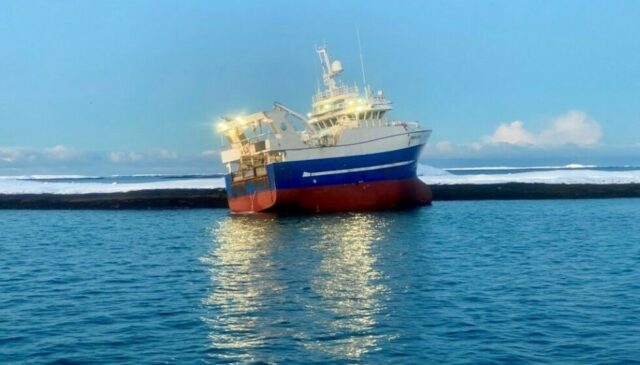Nijmegen Max

On the night of January 6, the 110 meter long self-propelled container-barge Nijmegen Max (MMSI: 244012151) ran aground on the Maas River near Roermond, Netherlands. The Nijmegen Max was leaving Roermond when it ran up on a breakwater. The bow of the vessel remained firmly stuck while the stern still in the navigation channel. Authorities halted traffic between Linne and Roermond while the barge could be salvaged.
Reports state the Nijmegen Max was able to refloat itself the following day. No reports of injuries or pollution released. This is second accident for the Nijmegen Max within a few months. On September 11, the Nijmegen Max struck the Willems Bridge on the Nieuwe Maas River.










